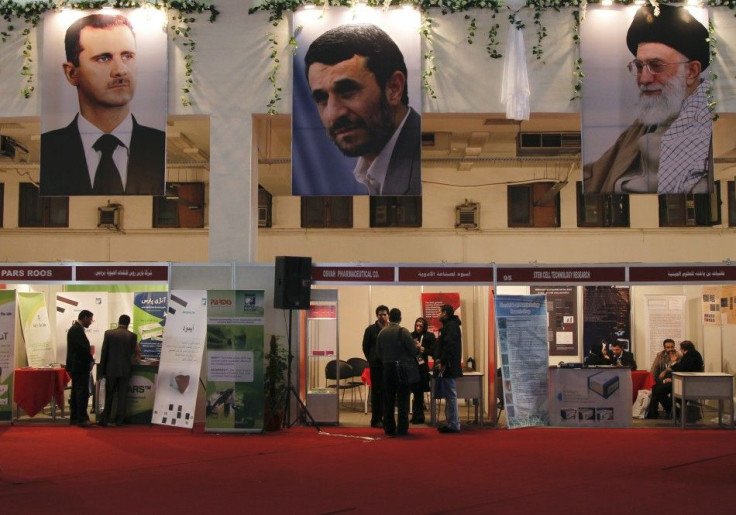Iran Continues Illicit Arms Sales To Syria, U.N. Report Finds

Iran continues to send arms shipments to Syria in violation of a U.N. Security Council ban on weapons exports, according to a draft report by a U.N. panel released Wednesday exclusively to Reuters.
The report comes as the U.N. maintains a peacekeeping mission to Syria, which has been embroiled for more than a year in a violent conflict between the military and opposition forces seeking to overthrow President Bashar al-Assad.
Iran, along with Russia, has backed the Assad government and supplied it with weapons despite international attempts to quell the violence that has taken more than 9,000 lives, according to U.N. estimates.
The report said there had been three seizures of large Iranian weapons shipments over the past year that are currently being investigated by the panel, and whose findings will be submitted to the Security Council's Iran sanctions committee.
Iran has continued to defy the international community through illegal arms shipments. Two of these cases involved the Syrian Arab Republic, as were the majority of cases inspected by the panel during its previous mandate, underscoring that Syria continues to be the central party to illicit Iranian arms transfers, the report said, according to Reuters.
The panel recommends the designation (blacklisting) of two entities related to these interdictions, it continued. The report also takes note of information concerning arms shipments by Iran to other destinations.
The third shipment was said to contain rockets headed to Taliban fighters in Afghanistan.
Iran Seeks 'Critical Items' For Nuclear Program
The report also found that Iran continues to seek materials for its nuclear program, circumventing sanctions.
Sanctions are slowing Iran's procurement of some critical items required for its prohibited nuclear program, the report said, according to Reuters. At the same time prohibited activities continue, including uranium enrichment.
Among these items that Iran is seeking are nuclear-grade graphite, high-strength aluminum, specialized alloys, a special type of steel known as maraging steel, carbon fiber, magnets, vacuum pumps, turbines, electrical switchboards and helium gas detectors, Reuters reported.
The panel identifies the acquisition of high-grade carbon fiber as one of a number of critical items Iran requires for the development of more advanced centrifuges, the report said.
Iran has repeatedly denied allegations that it is attempting to develop atomic weapons through its nuclear program, and refuses to halt uranium enrichment.
The report's findings come as Iran prepares to enter nuclear talks in Iraq next week with the five permanent members of the Security Council and Germany.
© Copyright IBTimes 2024. All rights reserved.





















